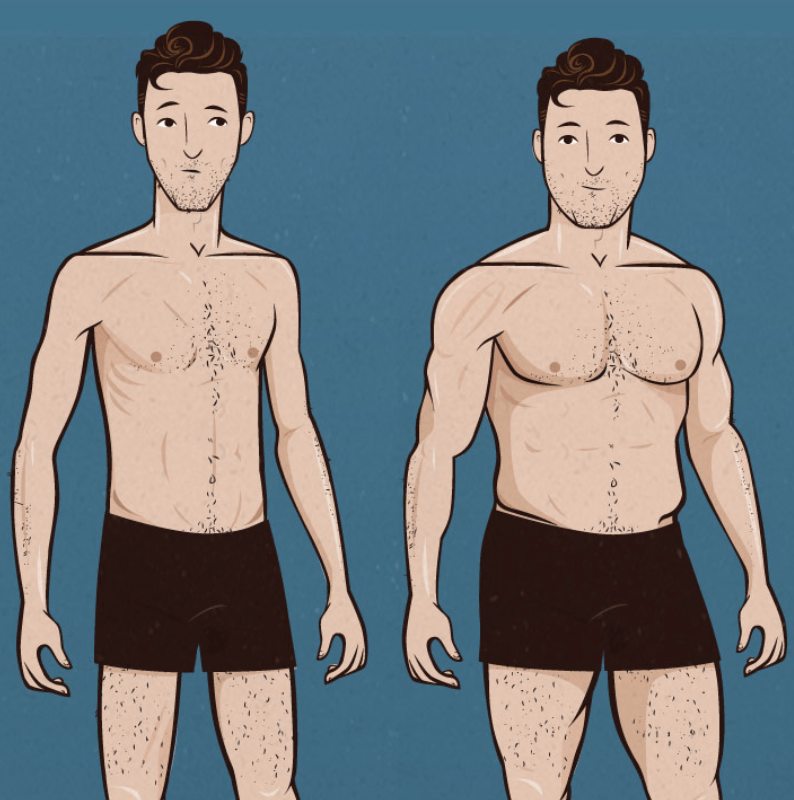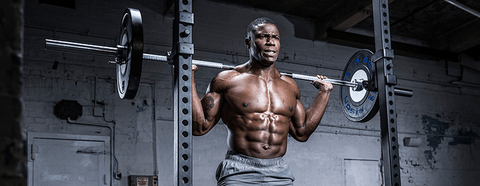HOW DOES PROTEIN HELP WITH LEAN BULKING

HOW DOES PROTEIN HELP WITH LEAN BULKING

Protein for Lean Bulking
So you want to know more about protein? Welcome! In this article we will focus on everything you need to know about protein for bulking, muscle gains and strength gains. Looking for Everything You Need to Know About Protein for Weight Loss? Check it out HERE:
What is Protein?
Protein is one of the three macronutrients (often simply referred to as macros), that is needed by the body because it plays a role in all sorts of important tasks and bodily functions. Proteins are necessary to create and repair tissues, they are part of the makeup of your bones, muscles, hair and nails, and protein literally gives shape to your tissues and organs. When it comes down to it protein is one of the “building blocks” of your entire body.
Why is Protein Important for Lean Bulking?
But you're here because you want to know why you need protein- specifically when you're lean bulking, AKA trying to build muscle without also putting on excess fat. You know that protein is a major player in the process of building muscle, but how?
Strength training causes tiny, microscopic tears to occur in the fibers of your muscles. The body uses protein to synthesize new cells which are then used to repair the damaged muscle fibers. As a result, the muscle grows stronger and larger than it was before, as it increases in size and mass. Without sufficient protein in the body through dietary sources, there isn't enough fuel to properly complete this process and you won't get the gains you're after.
How Much Protein Should I Have if I Want to Build Muscle Without Gaining Fat?
Since protein is essential for such a wide variety of bodily processes, it is important to get enough in your diet everyday, regardless of whether you're lean bulking or not. You can start by including it from a variety of sources each time you sit down to eat during the day, including all meals and snacks. But if you are looking for an exact amount, 2.2g per kilo of lean body mass is more than enough to support the repair and rebuilding process.
Keep in mind that even while lean bulking, you still want to focus a good amount of attention on carbohydrates and healthy fats. Carbs will help fuel your workouts, giving you energy and flushing your muscles with glycogen to power your tough training sessions.
There are plenty of sources of lean protein, and you don't have to be a voracious meat eater in order to get enough. While lean meats like chicken, turkey and fish are great sources of protein, you don’t need to load down every plate with them. You can also include plant-based sources of protein like beans, hemp seeds and quinoa, as well as non-meat animal sources like eggs and dairy. The idea is to get a good balance of different kinds of proteins, both complete and incomplete sources, to get the best nutritional makeup.
Is Having Too Much Protein Bad?
And alas, could there be too much of a good thing? Research is emerging that people who eat diets very high in protein have a higher risk of developing kidney stones, not to mention that diets high in red meat shows a correlation to higher risks of colon cancer and heart disease.
However, diets with reasonably high amounts of protein does not seem to link to any higher risks, and the benefits most likely outweigh any small increase in risk. If you have kidney disease, you might want to reduce your protein intake, but you should always seek advice from a medical professional. Try your best to include protein from a variety of sources, both meat and non-meat along with a balanced diet.
